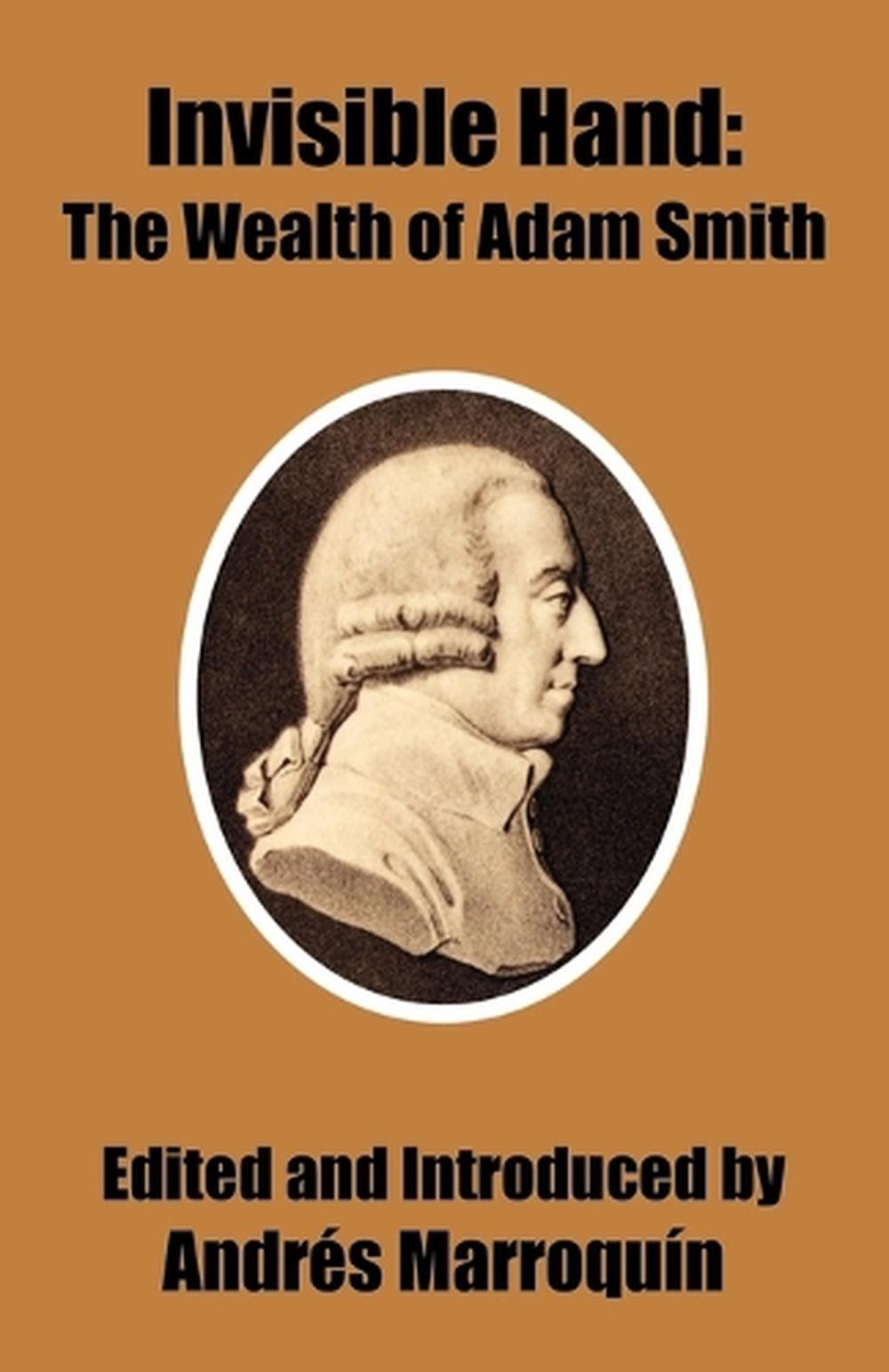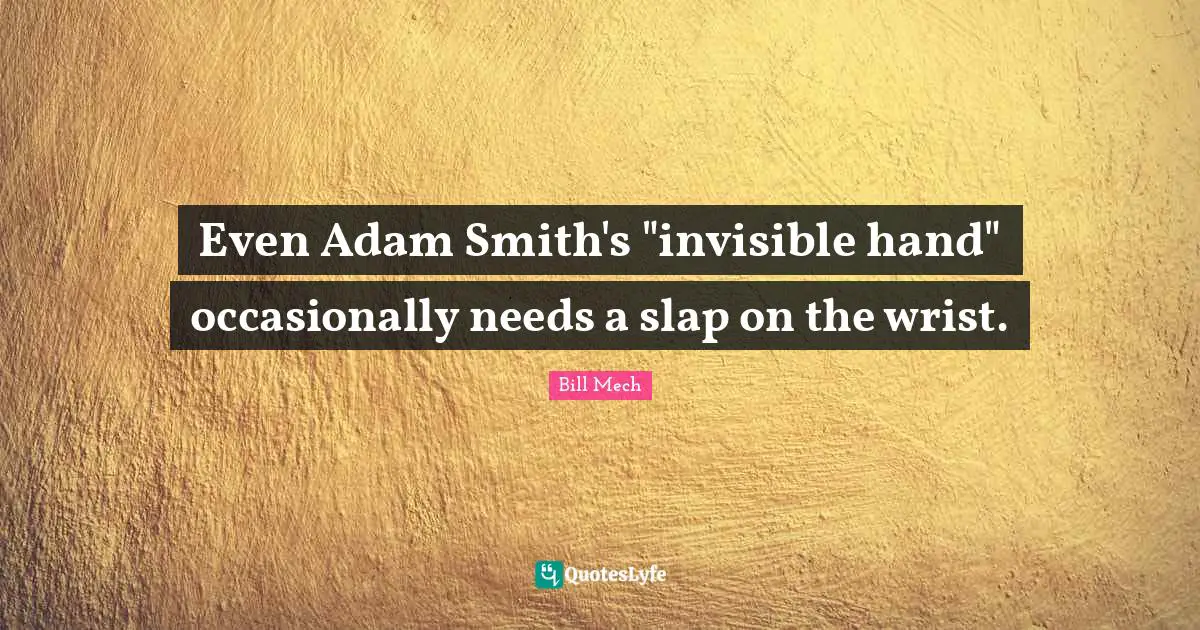

L.: 1988, Behind the Veil of Economics: Essays in the Worldly Philosophy, (W.W. Glahe (ed.), Adam Smith and the Wealth of Nations: Bicentennial Essays 1776–1976 (Colorado Associated University Press, Boulder, Colorado). M.: 1978, ‘Adam Smith and the Industrial Revolution’, in F. ‘Harlequin Enterprises Limited: A Global Success Story’ (Harlequin, n.d., Toronto). Hall, D.: 1992, ‘Nafta to Eliminate Love, Wilson Says’, Arthur Oct 13, p. B.: 1887, Life of Adam Smith (Walter Scott, London). Moore (eds.), Business Ethics: Readings and Cases in Corporate Morality (second ed.) (McGraw-Hill, New York). Matthews: 1982, ‘Can a Corporation Have a Conscience?’, in W.

Paul (eds.), Ethics and Economics, (Blackwell, Oxford).
#ADAM SMITH INVISIBLE HAND REFRENCE FREE#
Gibbard, A.: 1985, ‘What is Morally Special About Free Exchange?’, in E. Galloway, D.: 1992, Unpublished presentation on Harlequin enterprises, Trent University, Feb 4. K.: 1977, The Age of Uncertainty (Houghton Mifflin Co., Boston). Fred (ed.), Adam Smith and the Wealth of Nations: Bicentennial Essays 1776–1976 (Colorado Associated University Press, Boulder, Colorado). Moore (eds.), Business Ethics: Readings and Cases in Corporate Morality (second ed.) (MacGraw-Hill, New York)įriedman, M.: 1978, ‘Adam Smith's Relevance for 1976’, in R.

‘Ethics and Economic Success’: 1992, European Business Ethics Newsletter, May, 3.įriedman, M.: 1970, ‘The Social Responsibility of Business is to Increase Its Profits’, in W. B.: 1990, Corporate Corruption: the Abuse of Power (Praeger, New York). D.: 1971, Adam Smith's Science of Morals (George Allen & Unwin, London).Ĭlinard, M. Bruce: 1984, Welfare Economics (Backwell, Oxford).Ĭampbell, T. Boone: 1992, Foundations of Marketing (5th Canadian ed.), (Holt, Rinehart and Winston, Toronto).īroadway, R. In particular, the invisible hand argument applies only to investing capital in one's own country for maximum profit. How can these two views of what results when merchants and manufactures pursue their self-interest be made compatible? It is argued that the invisible hand argument when applied to merchants and manufacturers, (its application to labour and landlords is only mentioned briefly), is extremely restrictive, and that similar restrictions must apply to the moral corollary. Smith does use the invisible hand argument however, a close reading of the Wealth of Nations reveals that Smith thought the interests of merchants and manufacturers were fundamentally opposed to those of society in general, and that they had an inherent tendency to deceive and oppress society while pursuing their own interests. Many people, although Smith did not, draw a moral corollary from this argument, and use it to defend the moral acceptability of pursuing one's own self-interest. The invisible hand of the free market will transform the individual's pursuit of gain into the general utility of society. This phrase about the “invisible hand”, along with Adam Ferguson’s that societies were “the result of human action, but not the execution of any human design,” are two of the most important and profound insights to emerge out of the Scottish Enlightenment.Adam Smith is usually thought to argue that the result of everyone pursuing their own interests will be the maximization of the interests of society. It is surprising to see where else it crops up in his writings. With his complete works online it is possible to do a “key word” search for this phrase across his entire corpus. The concept of the “invisible hand” is one of Smith’s most potent concepts and is consequently one of his most famous statements. Liberty Fund is pleased to publish in paperback Glasgow Edition of the Works and Correspondence of Adam Smith, in 7 volumes, which was commissioned by the University of Glasgow and originally published by Oxford University Press in 1976 in order to commemorate the 200th anniversary of the first publication of Smith’s The Wealth of Nations (1776). … by directing that industry in such a manner as its produce may be of the greatest value, he intends only his own gain, and he is in this, as in many other cases, led by an invisible hand to promote an end which was no part of his intention. This passage comes from Adam Smith, An Inquiry into the Nature and Causes of the the Wealth of Nations and is perhaps one of his most famous quotations (1776): Found in An Inquiry Into the Nature and Causes of the Wealth of Nations (Cannan ed.), vol.


 0 kommentar(er)
0 kommentar(er)
